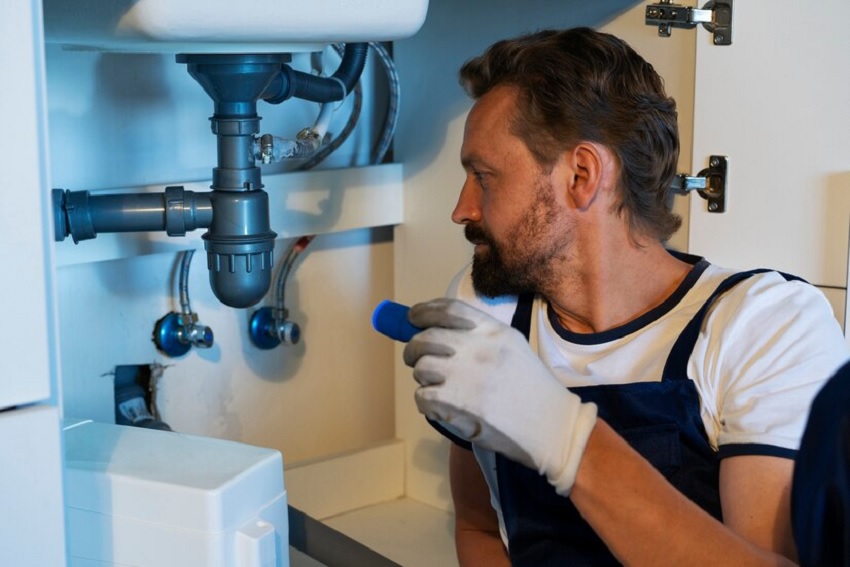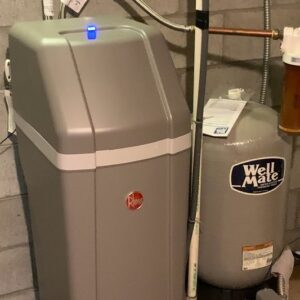Hey there, homeowners! Let’s discuss a topic that may not be the most thrilling but is undoubtedly crucial: the safety aspects of plumbing. Whether you’re a seasoned DIYer or just starting to dip your toes into home maintenance, keeping your plumbing in tip-top shape while staying safe is key.
Here are some friendly plumbing safety tips that every homeowner should know!
1. Familiarize Yourself with Shut-Off Valves
Know the positions of all shut-off valves in your residence. These valves regulate the water flow to different fixtures and appliances. Knowing how to shut off the water quickly can prevent leaks or burst pipes.
2. Handle Chemicals with Care
If you’re tackling a clog or other plumbing issue with chemical drain cleaners, follow the manufacturer’s instructions carefully. Wear protective gloves and goggles, and ensure the area is well-ventilated. Remember, mixing different chemicals can be dangerous, so never combine products.
3. Use Tools Safely
When using plumbing tools like wrenches, pliers, or snakes, ensure you’re using them correctly. Incorrect usage may result in injuries or harm to your plumbing system. Take your time, and if you’re unsure, consider consulting a professional.
4. Protect Your Hands
Working on plumbing often involves handling rough materials like metal pipes or sharp objects. Utilize heavy-duty gloves to shield your hands from cuts, scratches, or burns.
5. Mind Your Back
Plumbing tasks might require bending, stooping, or lifting heavy objects. Safeguard your back by employing appropriate lifting methods, such as bending at the knees and maintaining a straight back posture. Consider using a back brace for support, especially during prolonged or strenuous tasks.
6. Watch for Mold and Mildew
Beyond safety, checking for mould and mildew in your plumbing areas is essential for your health. Moisture from leaks can foster mould growth, potentially worsening respiratory conditions and inducing other health complications. Address any signs of mould promptly and fix leaks to prevent their recurrence.
7. Stay Alert for Gas Leaks
If your home uses gas for heating or cooking, familiarize yourself with the smell of natural gas (often described as rotten eggs). If you detect this scent, evacuate your residence promptly and contact your gas company or emergency services from a secure location. Gas leaks demand urgent attention as they pose serious risks.
8. Recognize When to Seek Professional Assistance
While homeowners can manage numerous plumbing tasks, there are instances where it’s advisable to enlist the expertise of a professional plumber. If you’re unsure about a repair or installation or a problem that seems beyond your skill level, don’t hesitate to seek expert help. It’s preferable to err on the side of caution!
9. Safeguard Your Eyes
Wearing safety goggles is essential for plumbing tasks involving debris or chemicals. Splashes or airborne particles can cause eye irritation or injury, so always prioritize eye protection.
10. Check for Electrical Hazards
Water and electricity don’t mix well, so when working on plumbing near electrical outlets or fixtures, take precautions to avoid electrical hazards. Ensure your hands and tools are dry, and contemplate employing ground fault circuit interrupters (GFCIs) in damp areas to mitigate the risk of electric shocks.
11. Beware of Hot Water
Scalding water can cause serious burns, so be cautious when working with hot water pipes or fixtures. Turn off the water heater before performing maintenance tasks, and allow hot water to cool down before handling it directly.
12. Keep Emergency Numbers Handy
It’s crucial to have essential contact numbers readily available in a plumbing emergency. Keep the contact information of a reliable plumber and local emergency plumbing services readily available. Being prepared can save precious time during urgent situations.
Emergencies you should not ignore:
Infographic provided by Air Mechanical, a provider of heating and cooling in Minneapolis
Conclusion
In conclusion, prioritizing plumbing safety is essential for every homeowner. By following the tips outlined in this article, you can ensure the smooth functioning of your plumbing system and the safety of yourself and your loved ones. Each tip is crucial in maintaining a safe home environment, from knowing your shut-off valves to handling chemicals carefully and being mindful of potential hazards like gas leaks and electrical dangers. Remembering to protect your hands, back, and eyes and being cautious around hot water are integral to a comprehensive safety plan. Additionally, knowing when to call a professional and keeping emergency numbers handy are proactive steps that can save time and money and potentially prevent serious damage in an emergency. So, whether you’re a seasoned DIYer or just starting with home maintenance, incorporating these plumbing safety tips into your routine will enhance your confidence in tackling plumbing projects and provide peace of mind, knowing that you’re taking the necessary precautions to safeguard your home and well-being. You can enjoy a safe and successful home plumbing experience for years by prioritizing safety.





